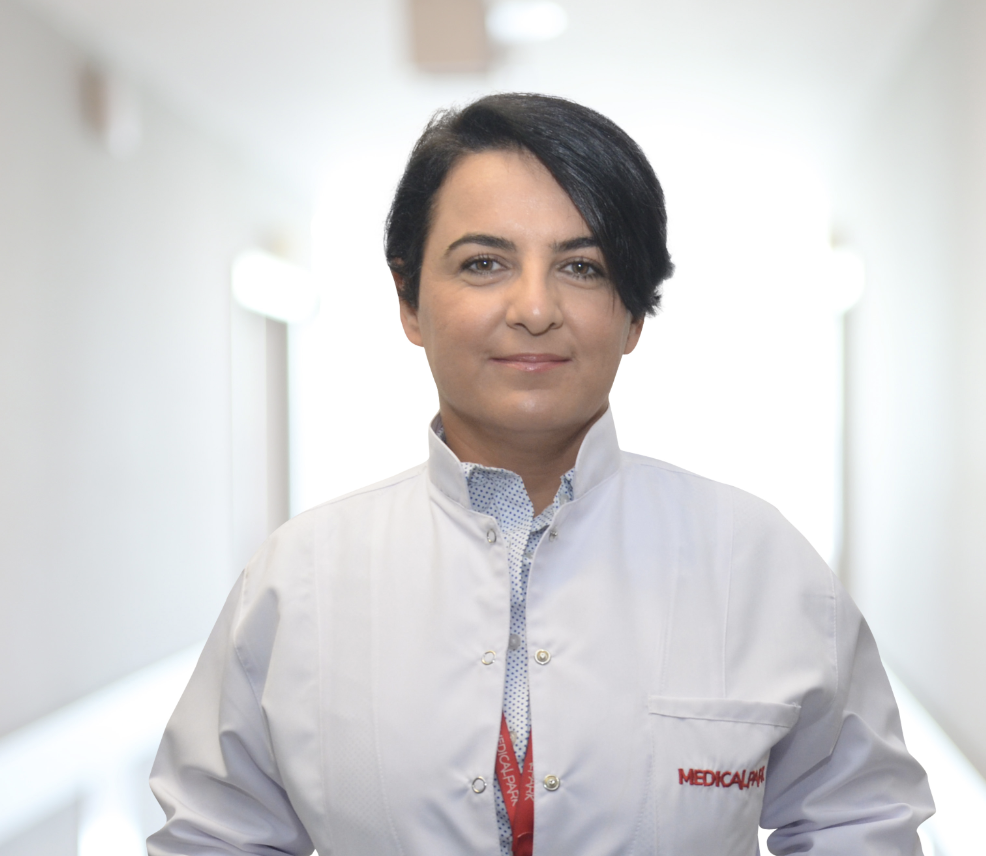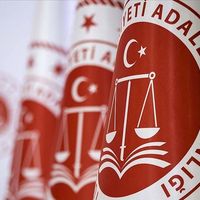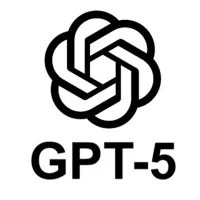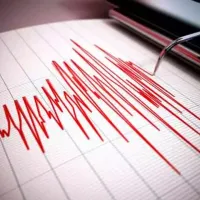Neslihan Özyurt said, “Although breast cancer is 150 times more common in women than in men, men are also at risk. Breast cancer may develop in 1 in every 8 women and 1 in every 1000 men during their lifetime. "According to statistics, the average age of breast cancer diagnosis is 62," he said.
Medical Park Ordu Hospital Medical Oncology Specialist D r. Neslihan Özyurt made statements about breast cancer.
r. Neslihan Özyurt made statements about breast cancer.
“Pay attention to these symptoms”
Referring to the symptoms that may be seen in breast cancer, Specialist. Dr. Neslihan Özyurt, “Symptoms of breast cancer; It presents as a bloody or transparent discharge from the nipple and a painful or painless palpable mass in the breast or armpit. Other symptoms include inward pulling of the nipple, collapse or deformity, peeling of the nipple skin, crusting, wounds on the breast skin, redness or orange peel-like edema, swelling and growth, deformity or asymmetry. "When such findings occur, a doctor should be consulted as soon as possible," he said.
“Sedentary life increases the risk of breast cancer”
Specialist Dr. Özyurt said the following about the risk factors of breast cancer:
“Breast cancer risk factors; age, race, smoking and alcohol use, a diet high in red meat and saturated fats, a sedentary lifestyle, menstruating for a long time (starting before the age of 12 and continuing after the age of 55), never giving birth or having your first child after the age of 30. Contrary to popular belief, only 10 percent of diagnosed breast cancer cases are hereditary. The risk doubles if a first-degree relative (mother, sister or daughter) has breast cancer. Having two first-degree relatives triples the risk. "Although it is not certain, the risk of breast cancer also increases in women whose father or brother has breast cancer."
“It can be detected at an early stage with screening tests”
Specialist said that screening tests are performed to detect cancer at an early stage. Dr. Özyurt said that the purpose of screening tests is to diagnose cancer before symptoms appear. Specialist noted that the disease is often in an advanced stage when symptoms appear. Dr. Özyurt said, “If detected in the early stages, more than 90 percent of the patients live normal lives. That's why October has been designated as Breast Cancer Awareness Month by the World Health Organization since 2004, in order to emphasize the importance of early diagnosis and awareness of breast cancer. In October, educational activities are carried out to increase awareness of the disease and efforts are made to ensure that people show interest in screening programs. In our country, screening is recommended for women between the ages of 40 and 69, with a mammogram every two years, and a breast examination once a year from the age of 40 onwards. "If there is a first-degree relative diagnosed with breast cancer, these examinations should start 5 years before the age at which the relative diagnosed with cancer was diagnosed," he said.
“Other ways of early diagnosis”
Explaining other options for early diagnosis, Specialist. Dr. Özyurt shared the following information:
“Other methods used for early diagnosis are tests such as breast ultrasonography, breast MRI and blood tests when necessary. After detecting a mass in the breast, the diagnosis is made by pathological examination of the biopsy performed there. Treatment decisions are made after the disease is staged using systemic imaging methods. "In the treatment of breast cancer, surgery, radiotherapy, chemotherapy, hormonal treatments, immunotherapy and targeted treatments are applied according to the stage of the patient."
“Recommendations to protect from breast cancer”
Expert who gives suggestions to protect against breast cancer. Dr. Özyurt said, “Weight control, balanced and healthy nutrition, especially quitting smoking, are very important. Care should be taken to avoid smoking and alcohol, brisk walks for at least 1.5 - 2.5 hours a week (reduces the risk by 18 percent), breastfeeding for at least 2 years after birth, avoiding stress, and complying with routine screening tests. He concluded his statements by saying, "It is recommended that individuals with a family history of breast cancer receive genetic counseling and start screening checks at an earlier age, considering that the frequency of this disease may have increased in them."
1 IN 8 WOMEN IS A CANDIDATE FOR BREAST CANCER
Medical Oncology Specialist Dr. says that breast cancer, which is the most common type of cancer and causes death in women in the world and in our country, is the uncontrolled excessive proliferation of breast cells.
Yorumlar
Trend Haberler

2025 Samsun Kavak, Asarcık, Vezirköprü, Salıpazarı, Ayvacık, Çarşamba, Bafra, Alaçam, İlçe Dolmuş Fiyatları

Samsun İlçeleri Arası Taşımacılık Fiyatlarına Yüzde 15 Zam! İşte Yeni Tarifeler

Vezirköprü İlçe Başkanı Turan Kaya'nın Yeğenine Ne Oldu?

Viski fiyatları
Haber Gazetesi İçerik






























